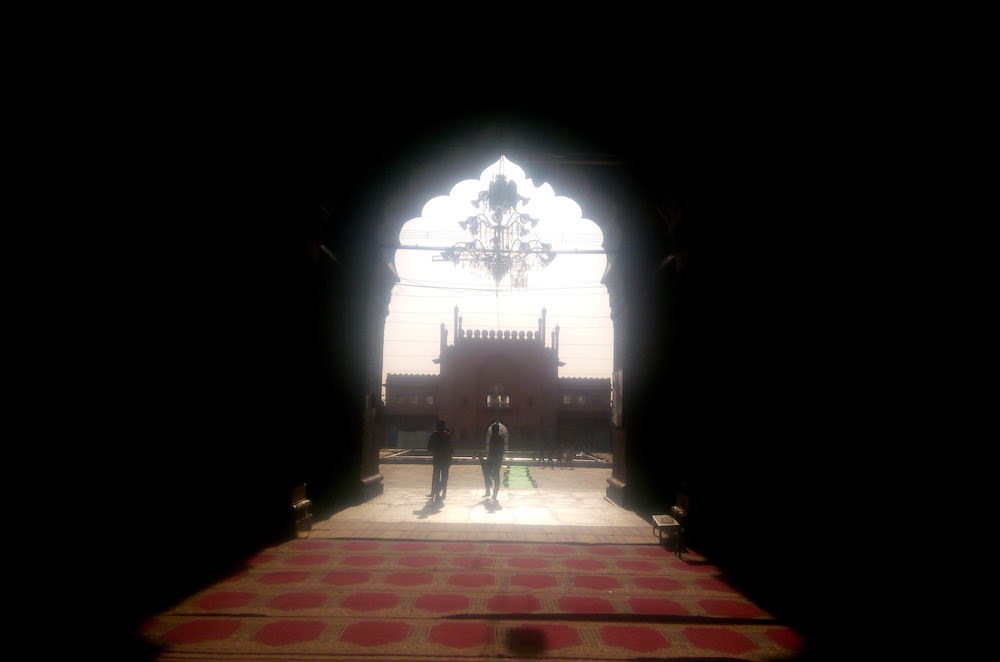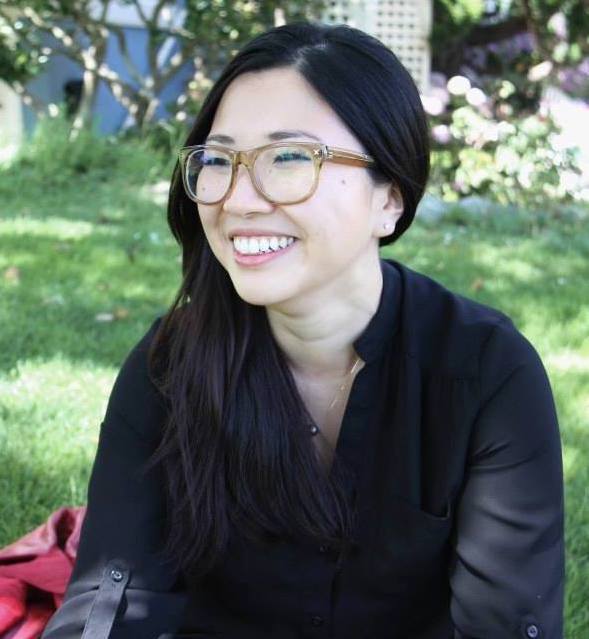Poem by Jenny Qi

Hello, Brother,
called out the man at the open door,
beckoning the stranger into Al Noor, the light.
The stranger approached,
opened fire into prayers, prayers.
The wounded tried to crawl away or lie still,
while others ran or crouched behind the dead,
piles of motionless men and boys
in a house of worship.
*
I think of a story I heard in childhood,
from a warring, factioned China, 220 A.D.
Hello, brother, called out the poet Cao Zhi,
summoned to court for execution.
The new emperor demanded Cao Zhi compose
a poem within seven steps. The poet said:
煮豆燃豆萁 Beans boil by beanstalks’ flame.
豆在釜中泣 From the pot cry the beans,
本是同根生 “From the same root we once came.
相煎何太急? Why burn each other now so urgently?”
Remembering their careless toddling days,
the emperor wept, sent his brother away.
The poem became known as Seven Steps Verse,
its origin story defining, transcending kin.
*
Seven Steps Verse mirrors
seven verses in the opening of the Qur’an,
seven steps of pilgrimage,
seven gates to heaven and hell,
seven days of creation in Genesis,
seven days of mourning, sitting shiva,
seven times seventy times forgiveness.
*
At least one nearby resident opened her home
to shelter people fleeing the mayhem.
“Please save us…pray for us...”
lying on the blood-soaked green carpet.
Beans boil by beanstalks’ flame.
From the same root we once came.
March 15, 2019
Christchurch, New Zealand
Publishing Information
- This poem refers to the shooting incident at Al Noor mosque in New Zealand on March 15, 2019. The italicized sections of the poem that begin with “The wounded,” “piles of,” “At least one,” and “Please save us” are from this New York Times article by : “Two New Zealand Mosques, a Hate-Filled Massacre Designed for Its Time.”
- The "Seven Steps Verse" is circa 200 A.D. with a near-mythic origin story (it's commonly attributed to Cao Zhi, but not with 100-percent certainty). One version of the Chinese appears in Wikipedia and has been used here along with an original English translation of those lines.
Art Information
- “Taj-ul-Masajid Inside” © Akshat Saxena; Creative Commons license.
 Jenny Qi is a writer and scientist. The child of survivors of the Chinese Cultural Revolution, she grew up in Las Vegas and Nashville, lost her mother at nineteen to cancer, and moved to San Francisco to pursue a PhD in cancer biology. Her essays and poems have been published in the New York Times, Atlantic, Tin House, Rattle, ZYZZYVA, Bellevue Literary Review, and elsewhere. Her poems have been nominated multiple times for the Pushcart Prize and Best of the Net. She is working on an essay series about science and memory as well as completing a poetry manuscript titled Focal Point.
Jenny Qi is a writer and scientist. The child of survivors of the Chinese Cultural Revolution, she grew up in Las Vegas and Nashville, lost her mother at nineteen to cancer, and moved to San Francisco to pursue a PhD in cancer biology. Her essays and poems have been published in the New York Times, Atlantic, Tin House, Rattle, ZYZZYVA, Bellevue Literary Review, and elsewhere. Her poems have been nominated multiple times for the Pushcart Prize and Best of the Net. She is working on an essay series about science and memory as well as completing a poetry manuscript titled Focal Point.
Of the Chinese verse Jenny includes in her own poem, she recently told TW:
The Chinese text can be read as my memory of reciting the poem.... Chinese children, at least from my parents' generation, typically learn to recite many short poems such as this, and this particular poem is one of the first ones my mother taught me and one of the most deeply ingrained.
For more information, visit Jenny Qi’s website or follow her on Twitter @JQiii.
